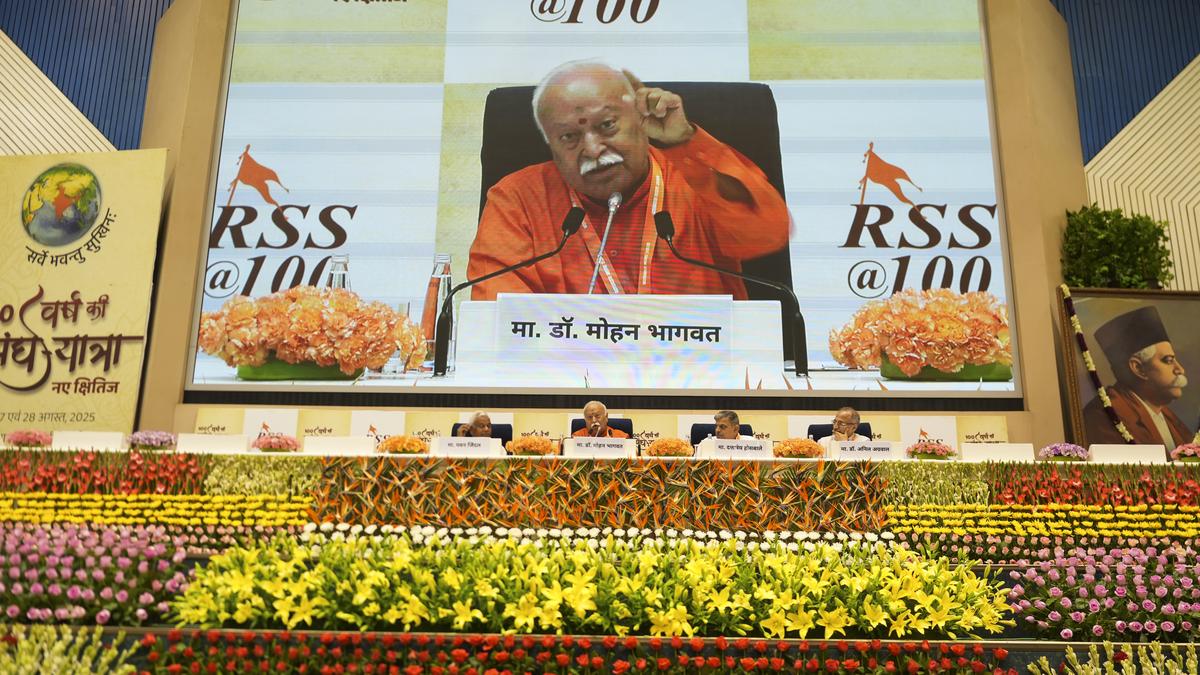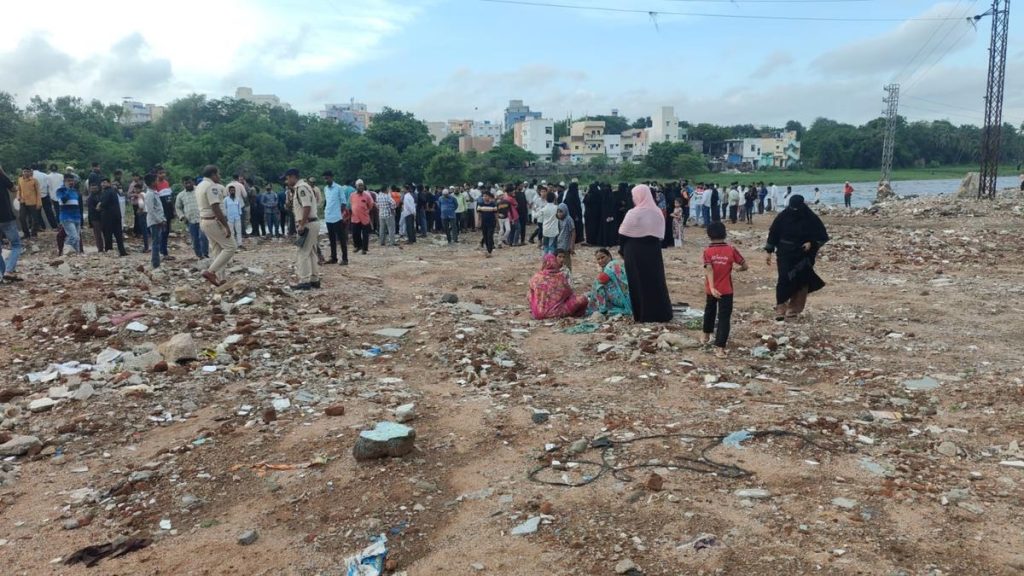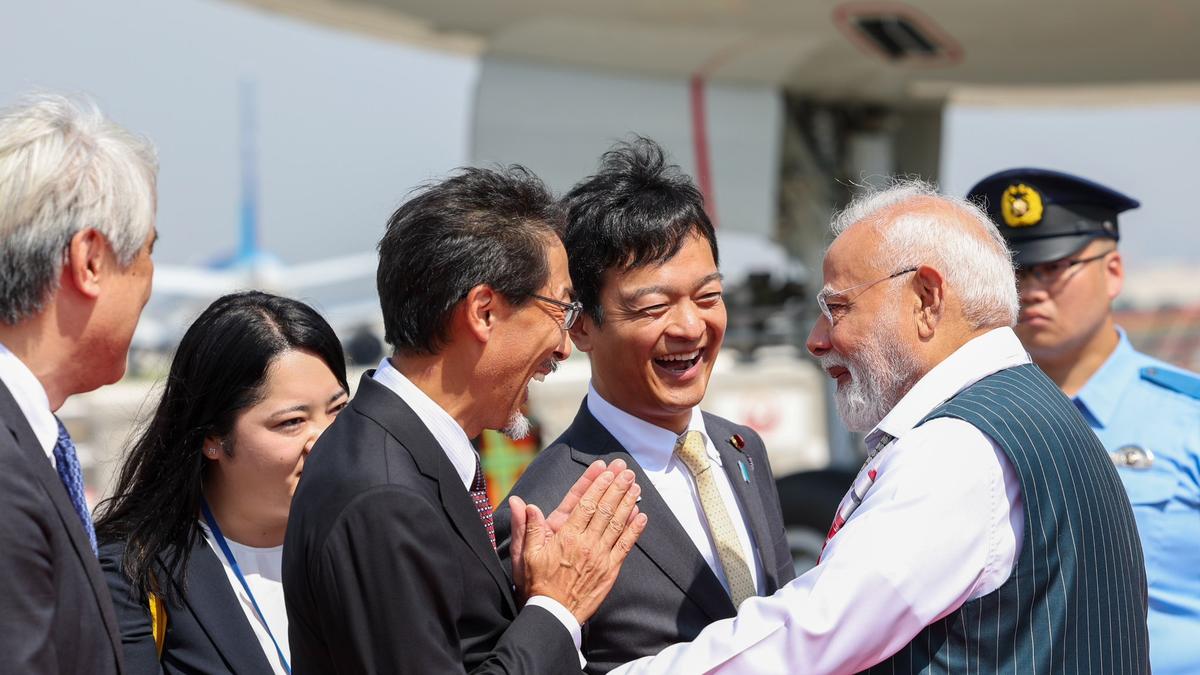Now Reading: Sangh Won’t Lead Movements for Mathura, Kashi but Won’t Restrict Members: Mohan Bhagwat
-
01
Sangh Won’t Lead Movements for Mathura, Kashi but Won’t Restrict Members: Mohan Bhagwat
Sangh Won’t Lead Movements for Mathura, Kashi but Won’t Restrict Members: Mohan Bhagwat

Quick Summary
- RSS and Temple movements: RSS Chief Mohan Bhagwat announced that the institution will not participate in future temple movements,such as those concerning Mathura or Kashi,but clarified that individual volunteers are free to join such causes privately.
- Appeal for Brotherhood: Mr. Bhagwat suggested that Muslim leaders voluntarily relinquish claims over disputed religious sites (e.g., Gyanvapi mosque, Shahi Eidgah) as a goodwill gesture to foster national unity.
- Perspective on Caste and Reservation: He reiterated the irrelevance of caste in contemporary society while affirming RSS’s support for constitutionally valid reservations until beneficiaries feel it is indeed no longer needed.
- Demographics and Religion: he voiced concerns about demographic shifts caused by illegal migration and coercive conversions, stressing the need for population balance without coercion. Mr. Bhagwat advised Indian families to have three children while maintaining population moderation.
- Education reforms: Advocated integrating values from ancient Gurukul education with modern systems under India’s national Education policy; stressed teaching Indian languages alongside English.
- RSS Functioning Principles:
– Denied any direct influence on BJP decision-making but acknowledged advisory input when solicited.
– Clarified there’s no retirement in Sangh roles; responsibilities continue based on capability rather than age.
– Emphasized collaboration among Sangh affiliates toward India’s development despite internal opinion differences.
- On Women & Family Participation in RSS: Highlighted active female participation within Rashtra Sevika Samiti; noted Sangh accommodates married men in leadership roles depending upon commitment levels.
- food Choices & Festivals Laws: Urged mutual respect over food practices during Hindu festivals where meat bans exist, supporting voluntary compliance rooted in social harmony.
Read more at The Hindu.
Indian Opinion Analysis
Mohan bhagwat’s statements delineate a nuanced approach aiming to decouple institutional positions of the RSS from direct activism while allowing space for individual agency within its ideology frame-evident in his remarks about temple movements and swayamsewaks’ personal freedom to engage.
The advocacy of abandoning outdated caste frameworks aligns with larger calls for progressive societal reform, though ongoing inequalities may test this resolve despite commitments like supporting affirmative action measures inclusively.
Concerns regarding demographic changes call attention to longstanding debates around migration policies and religious conversions; however,they also invite broader dialog across communities given India’s pluralistic ethos.
Educational reforms promoting cultural roots coupled with innovation foreground what could be a meaningful recalibration balancing tradition with global competitiveness under India’s new education policy.his remarks suggest an evolving stance within India’s socio-political landscape wherein inclusivity efforts (e.g., calls for interfaith brotherhood) are tempered by firm cultural assertions like renaming symbols associated with “invaders.” By emphasizing systemic collaboration yet autonomy between affiliates like BJP and RSS entities while steering clear of contentious direct political interventions publicly-it reflects strategic groundwork prefiguring broader ideological cohesion aimed toward integral nation-building aspirations.
























